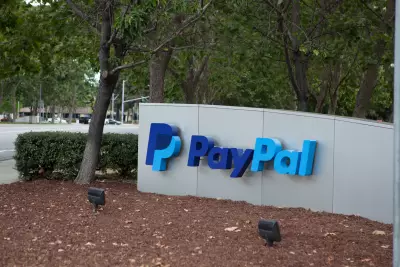VPNLab Shut Down by Europol
Table of Contents
- By David Lukic
- Published: Jan 18, 2022
- Last Updated: Mar 18, 2022
Cyber miscreants’ preferred VPN service, VPNLab.net, has been shut down. Europol put the kibosh on VPNLab earlier this week.
What, Exactly, is VPNLab?
VPNLab.net served as a VPN provider. VPN is an acronym short for virtual private network, meaning a private network that shifts across one that is public, empowering users to transmit and receive information as though their computers were linked to the private network. VPNLab.net was one of the most popular means of sending ransomware and launching other cybercrimes. The provider was removed from the web by law enforcement.
How and Why was VPNLab Taken Offline?
Europol stated it proactively removed VPNLab from the web with a grounding of its 15 servers. The service was officially shut down on January 17. VPNLab is now inoperable. The service caused significant disruptions across the United States, the United Kingdom, Canada, Ukraine, Latvia, Germany, France, Hungary, and other parts of Europe.
The removal of VPNLab from the web also revealed the fact that the service was being used to target 100+ businesses in additional cyber-attacks. Europol is currently notifying those companies. However, the names of those businesses have not been released.
Why is the Removal of VPNLab So Important?
VPNLab launched in 2008, serving as an anonymous tool that provided two layers of VPN connectivity to clients. VPNLab was unique in that its web traffic was routed through two separate servers positioned in different countries. Clients used the service for as little as $60 per year. The service’s unique qualities and low cost made it one of the most popular tools for cyber miscreants.
Cyber criminals used the VPN’s services to commit crimes without worry of identification by Interpol or other law enforcers. Europol’s statement went on to detail how VPNLab helped anonymous criminals commit cybercrimes of high value. The platform was central to a litany of the most impactful cyber-attacks in recent years.
VPNLab gained notoriety after its infrastructure was used to transmit malware. Law enforcement and investigators found a plethora of evidence proving the service was marketed on the dark web for nefarious purposes. According to the Ukraine Cyber Police, VPNLab was used in nearly 160 ransomware attacks. All in all, VPNLab victims paid around €60 million in ransomware payments.
Will VPNLab be the Largest Cyber Crime Bust of the Year?
Though VPNLab’s shutdown is a major news story, it might not be the most significant bust of 2022. The removal of VPNLab is only the latest action taken to halt digital attacks. Rewind less than two years ago and Safe-Inet, a seemingly impenetrable VPN service, was also taken offline. In the summer of 2021, DoubleVPN was removed from the internet for good. If the trend continues, additional VPN sites and cybercriminal networks will be shut down in the year ahead.
As noted by Edvardas Sileris, the top-ranking member of Europol’s European Cybercrime Centre, the actions resulting from the VPNLab investigation make it crystal clear that cyber miscreants are running out of time and methods to conceal their illegal activities on the web. Sileris went on to state how the investigations Europol conducts serve as building blocks for ensuing investigations, meaning the information collected during the VPNLab bust will help authorities pre-empt even more cyber security attacks moving forward.















